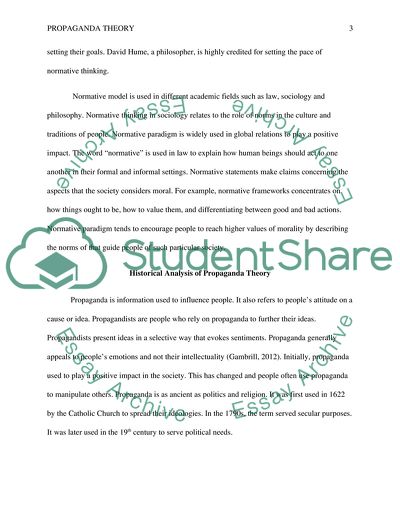Cite this document
(Propaganda Theory Literature review Example | Topics and Well Written Essays - 2750 words, n.d.)
Propaganda Theory Literature review Example | Topics and Well Written Essays - 2750 words. https://studentshare.org/sociology/1852366-propaganda-theory
Propaganda Theory Literature review Example | Topics and Well Written Essays - 2750 words. https://studentshare.org/sociology/1852366-propaganda-theory
(Propaganda Theory Literature Review Example | Topics and Well Written Essays - 2750 Words)
Propaganda Theory Literature Review Example | Topics and Well Written Essays - 2750 Words. https://studentshare.org/sociology/1852366-propaganda-theory.
Propaganda Theory Literature Review Example | Topics and Well Written Essays - 2750 Words. https://studentshare.org/sociology/1852366-propaganda-theory.
“Propaganda Theory Literature Review Example | Topics and Well Written Essays - 2750 Words”. https://studentshare.org/sociology/1852366-propaganda-theory.


